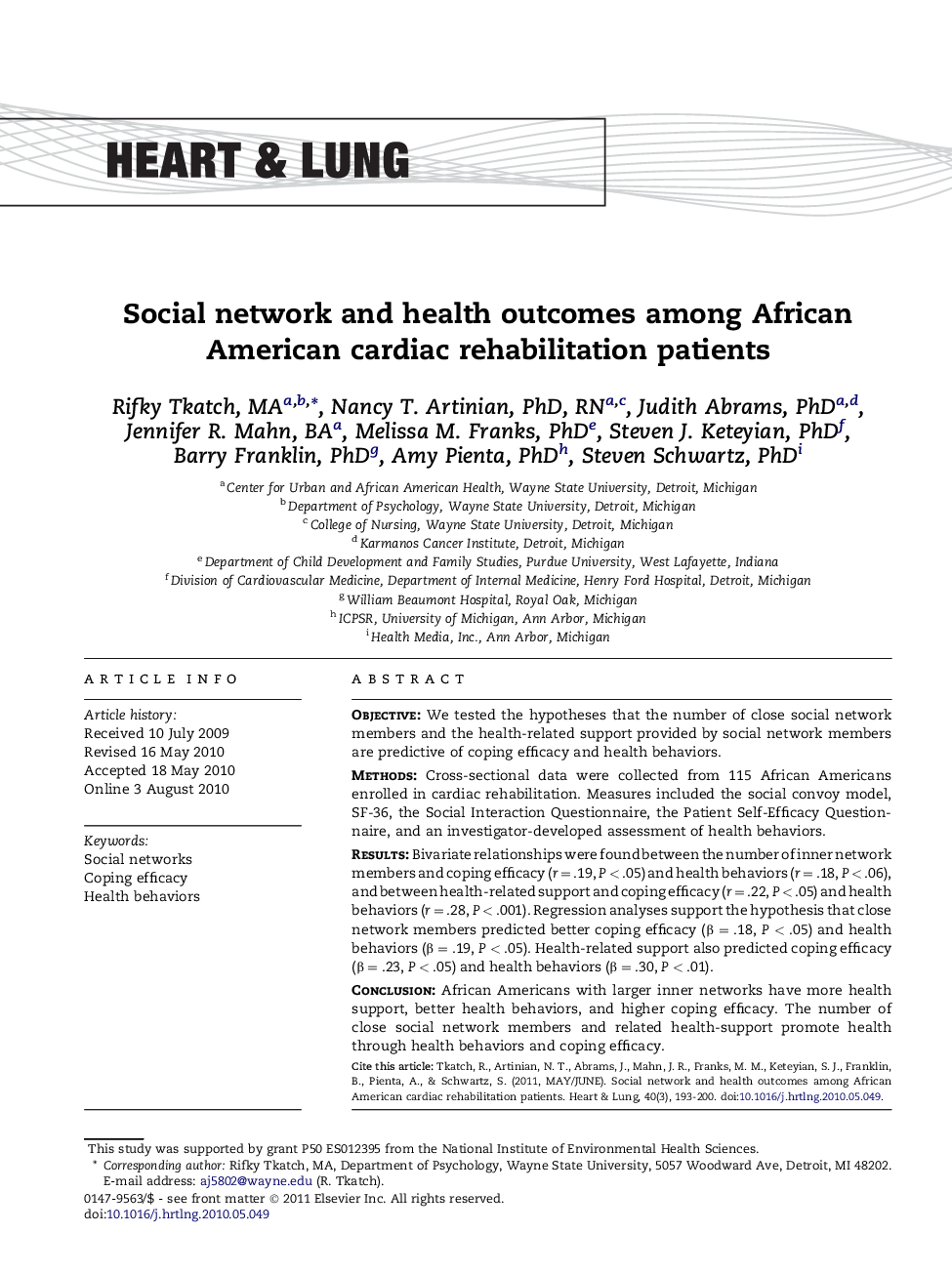| Article ID | Journal | Published Year | Pages | File Type |
|---|---|---|---|---|
| 2651830 | Heart & Lung: The Journal of Acute and Critical Care | 2011 | 8 Pages |
ObjectiveWe tested the hypotheses that the number of close social network members and the health-related support provided by social network members are predictive of coping efficacy and health behaviors.MethodsCross-sectional data were collected from 115 African Americans enrolled in cardiac rehabilitation. Measures included the social convoy model, SF-36, the Social Interaction Questionnaire, the Patient Self-Efficacy Questionnaire, and an investigator-developed assessment of health behaviors.ResultsBivariate relationships were found between the number of inner network members and coping efficacy (r = .19, P < .05) and health behaviors (r = .18, P < .06), and between health-related support and coping efficacy (r = .22, P < .05) and health behaviors (r = .28, P < .001). Regression analyses support the hypothesis that close network members predicted better coping efficacy (β = .18, P < .05) and health behaviors (β = .19, P < .05). Health-related support also predicted coping efficacy (β = .23, P < .05) and health behaviors (β = .30, P < .01).ConclusionAfrican Americans with larger inner networks have more health support, better health behaviors, and higher coping efficacy. The number of close social network members and related health-support promote health through health behaviors and coping efficacy.
